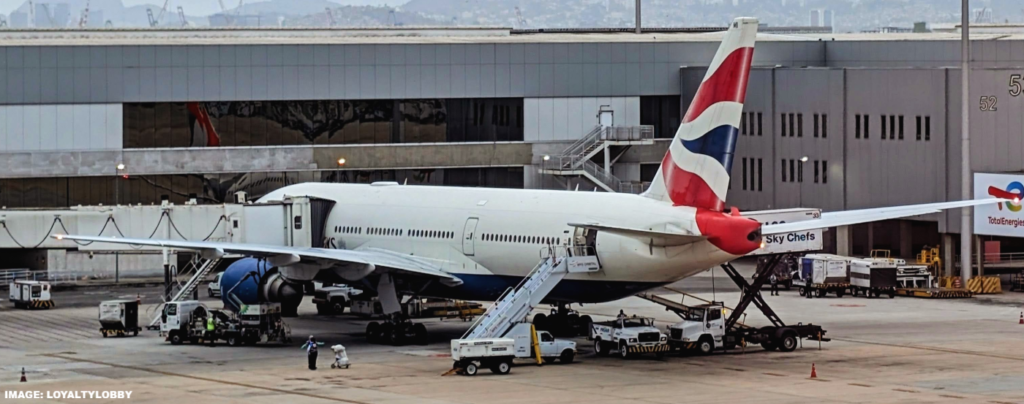A major drug smuggling attempt was thwarted at London’s Gatwick Airport after a British Airways aircraft undergoing routine maintenance was found to have £100,000 worth of cocaine hidden in one of its lavatories.

The discovery was made by a service engineer who was carrying out standard checks on the Boeing aircraft after it arrived from Orlando, Florida. The plane had been taken into a hangar for scheduled maintenance when the illicit stash was discovered tucked behind a panel in a lavatory, hidden discreetly behind a waste bin.
Upon finding the suspicious package, the engineer immediately alerted authorities. The National Crime Agency (NCA) and Border Force have since launched a full-scale investigation into what officials are calling a “serious security breach.”
A source close to the investigation described the find as “an astonishing discovery”, emphasizing how concerning it is that such a large quantity of illegal drugs managed to get onboard an international flight.
“This is a serious breach in airport and airline security,” the source said. “Someone managed to smuggle a significant quantity of Class A drugs onto a transatlantic flight. It’s deeply troubling, especially considering the potential for even more dangerous substances to have been transported the same way.”
According to the source, the cocaine was expertly hidden with the clear intention of being retrieved once the aircraft had landed in the UK. However, the timing of the routine checkup thwarted the operation. “Whoever planted it didn’t count on the aircraft going into maintenance straight after landing,” the source explained. “They got very unlucky.”
Due to the secure nature of aircraft cabins and the specific location of the hidden cocaine—within a concealed panel behind a lavatory bin—investigators suspect that an insider may have been involved in placing the drugs onboard. “It’s unlikely that a passenger would have had the access or time to hide something so precisely,” the source added.
“This kind of placement suggests someone with knowledge of the aircraft’s layout and access to restricted areas, such as a crew member, baggage handler, or cleaner. These are people who can move around discreetly and without raising suspicion.”
The insider added ominously, “Whoever was responsible will be in serious trouble. That kind of product isn’t lost without consequence—criminal groups don’t take these things lightly.”
The NCA and Border Force are currently analyzing surveillance footage, flight records, and crew logs to trace who might have been responsible. Both agencies are also working to determine whether the case is linked to a larger international drug smuggling network.
A spokesperson for the Home Office issued a strong warning to those involved in drug trafficking: “Those who attempt to smuggle illegal drugs into the UK should be in no doubt—Border Force will find them. We are committed to dismantling the criminal operations that threaten the safety of our communities.”
British Airways has declined to comment publicly while the investigation remains ongoing.
The incident comes amid heightened concerns over the use of commercial aircraft for drug trafficking, particularly involving insider threats. Airport and airline staff across the UK have faced increasing scrutiny in recent years as organized crime groups seek new methods to bypass traditional border checks.
This latest bust highlights the critical importance of rigorous post-flight inspections and inter-agency cooperation in identifying and disrupting smuggling operations.
As investigators continue to piece together the details, the incident serves as a stark reminder of the evolving tactics used by criminal enterprises—and the vigilance required to stay one step ahead.



